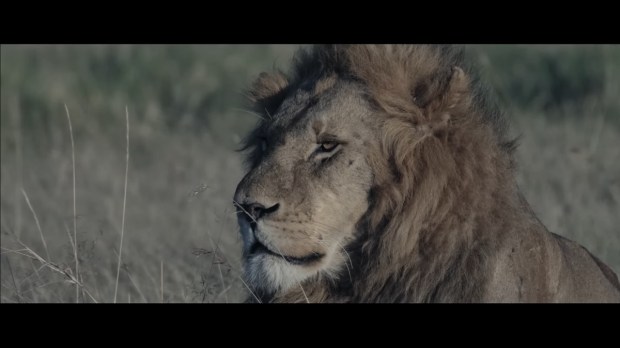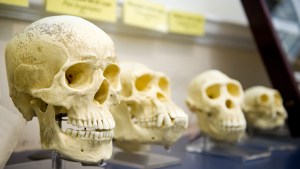The author of this essay served as an editor on the Wonder series. Read also about episodes one, two, and three.
In the fourth episode of Word on Fire’s Wonder, the series takes a closer look at the human animal—this time, shifting from a religious openness to evolution to a secular openness to ensoulment.
“Animals, the Human Animal, and God” shows the insight of Christopher T. Baglow, leader of the Science & Religion Initiative at the University of Notre Dame and the writer for the series.
Manny Marquez, the director, says a major challenge of making the films was “translating” Baglow’s scripts into something visually interesting.
“I spent over a month just reading and re-reading his words,” Marquez recalls. “Then I’d put my visual ideas on color coded note-cards. By the end of that process, I had all five episodes laid out before me on three giant cork boards.”
The episode begins by again situating us firmly in the creaturely world: “Human beings are animals,” the narrator Jonathan Roumie says, “and animals are the most amazing beings in our universe. They rejoice and play, they nurture their own young, and they mourn their dead.” As Roumie speaks, we see a series of black-and-white shots of people of different sexes, ages, and races against a white background—an aesthetic inspired by photographer Richard Avedon’s book Portraits.
“We set up that background in the center of Downtown Tulsa around lunchtime, and gathered over twenty-five portraits of our own,” Marquez explains. “Some people are family members I invited, just in case it didn’t work out.”
But though we human beings are animals, there is something unique about us, something that is as natural and obvious as it is strange and mysterious—namely, language. What does it mean to speak words to each other and understand them—something we do so often that we scarcely think about it? How did this happen? Our ancestors may have cleverly procured steaks and cooked them over fires—a hand in one scene holds a burning piece of wood in Marquez’s nod to Tarkovsky’s Mirror—but they did not speak nor reason about what they were doing. They just did it.
Then, at some point in our evolutionary history, “mere signals” of the animal kingdom—its “hoots, grunts, growls, songs, and dances”—became symbols. These symbols multiplied into language, “an entire network of symbols.” This explosive and sudden change revealed a new kind of animal in the cosmos unlike any other: the rational animal, which not only communicates about its environment, but transcends it through meaning.
This evolutionary leap forward was a preoccupation of the novelist Walker Percy, an agnostic scientist who converted to Catholicism after exploring life’s great existential questions. Percy, Baglow notes, later became fascinated by language in light of his own daughter’s deafness. As a Percy quote appears on screen, we shift back to another portrait—this time, of a man signing Percy’s words:
“The signal-using organism has an environment,” Percy wrote. “[A language-user] has an environment, but it also has a world. [That] world is segmented and named by language. . . . Even the gaps [in knowledge] are named—by the word gaps. . . . The world of the [language-user] is a totality.”
This mystery of language leads us, as Sean Beeson’s score crescendos, to the mystery of God. For to pose questions is to pose the ultimate question; to speak “is to be a speaker about God.” The human animal’s capacity for language is both a reflection of, and channel toward, a higher reality beyond the animals whose senses we share: the Creator of all things whose image we are.


